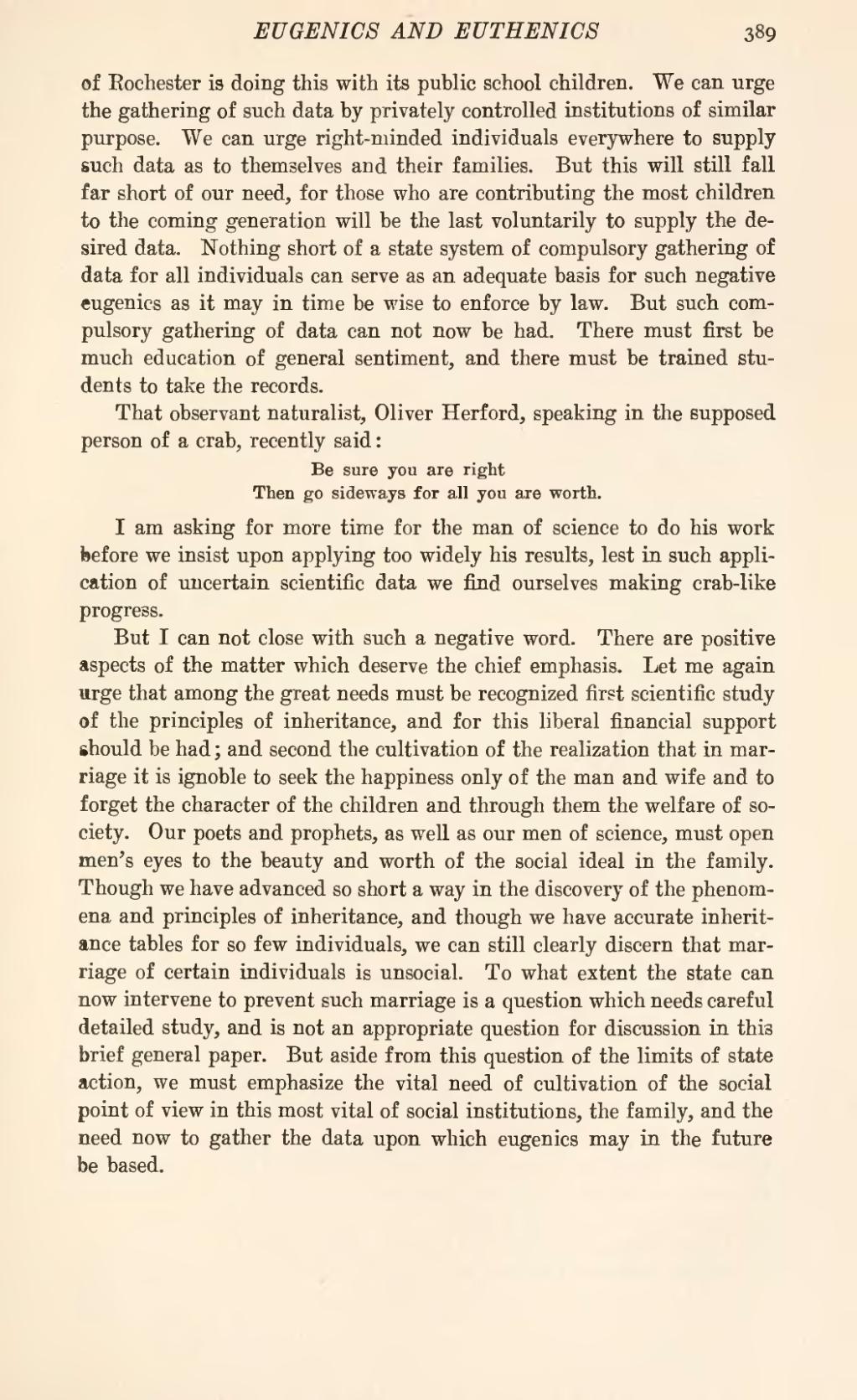of Rochester is doing this with its public school children. We can urge the gathering of such data by privately controlled institutions of similar purpose. We can urge right-minded individuals everywhere to supply such data as to themselves and their families. But this will still fall far short of our need, for those who are contributing the most children to the coming generation will be the last voluntarily to supply the desired data. Nothing short of a state system of compulsory gathering of data for all individuals can serve as an adequate basis for such negative eugenics as it may in time be wise to enforce by law. But such compulsory gathering of data can not now be had. There must first be much education of general sentiment, and there must be trained students to take the records.
That observant naturalist, Oliver Herford, speaking in the supposed person of a crab, recently said:
Be sure you are right
Then go sideways for all you are worth.
I am asking for more time for the man of science to do his work before we insist upon applying too widely his results, lest in such application of uncertain scientific data we find ourselves making crab-like progress.
But I can not close with such a negative word. There are positive aspects of the matter which deserve the chief emphasis. Let me again urge that among the great needs must be recognized first scientific study of the principles of inheritance, and for this liberal financial support should be had; and second the cultivation of the realization that in marriage it is ignoble to seek the happiness only of the man and wife and to forget the character of the children and through them the welfare of society. Our poets and prophets, as well as our men of science, must open men's eyes to the beauty and worth of the social ideal in the family. Though we have advanced so short a way in the discovery of the phenomena and principles of inheritance, and though we have accurate inheritance tables for so few individuals, we can still clearly discern that marriage of certain individuals is unsocial. To what extent the state can now intervene to prevent such marriage is a question which needs careful detailed study, and is not an appropriate question for discussion in this brief general paper. But aside from this question of the limits of state action, we must emphasize the vital need of cultivation of the social point of view in this most vital of social institutions, the family, and the need now to gather the data upon which eugenics may in the future be based.

